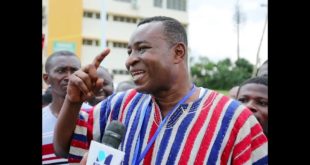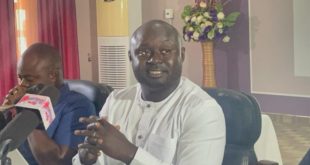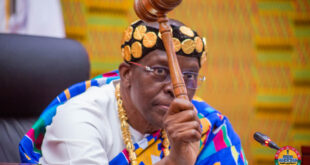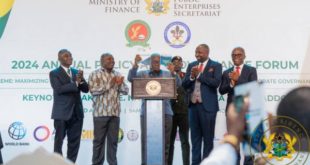Ghana is now receiving payments from a World Bank trust fund for lowering emissions from deforestation and forest degradation, sometimes known as REDD+, following Mozambique.
Ghana received $4,862,280 from the Forest Carbon Partnership Facility (FCPF) of the World Bank for lowering 972,456 tons of carbon emissions during the program’s first monitoring period (June to December 2019).
“This payment is the first of four under the country’s Emission Reductions Payment Agreement (ERPA) with the World Bank to demonstrate potential for leveraging results based payments for carbon credits,” said Pierre Laporte, World Bank Country Director for Ghana, Liberia, and Sierra Leone. “Subject to showing results from actions taken to reduce deforestation, Ghana is eligible to receive up to $50 million for 10 million tons of CO2 emissions reduced by the end of 2024.”
These activities take place inside a six million hectare area of the West African Guinean Forest, where small-scale mining, unsustainable cocoa harvesting, and other activities put strain on the forest’s biodiversity.
One of the 15 nations that have ERPAs in place with the World Bank is Ghana.
“The many years of dialogue, consultations, and negotiations with local communities, traditional authorities, government agencies, private sector, CSOs, and NGOs have paid off,” said Samuel A. Jinapor, Minister for Lands and Natural Resources. “This emission reductions payment will further promote confidence in Ghana’s REDD+ process for action to reduce deforestation and forest degradation while empowering local community livelihoods. The road to global 1.5 degrees cannot be achieved without healthy standing forests, and Ghana is committed to making it possible.”
The second-largest cocoa producer in the world is Ghana.
Although cocoa is a major economic driver, it is also one of the main sources of deforestation and forest degradation in the country’s southeast and west.
Instead of slash-and-burn land clearance methods that destroy trees, stakeholders are cooperating to assist over 140,000 Ghanaian farmers enhance cocoa output using climate-smart agroforestry practices.
A more sustainable cocoa industry helps communities gain more stable revenue streams and prevents the development of cocoa crops into forest lands.
Some of the most significant cocoa and chocolate firms in the world, including members of the World Cocoa Foundation like Mondelez International, Olam, Touton, and others, as well as Ghana’s Cocoa Board, take part in the REDD+ initiative.
In addition to bringing about change in the cocoa industry, their joint efforts are assisting Ghana in meeting its obligations to reduce its national emissions under the Paris Agreement.
This degree of cooperation is also evident in the benefit-sharing arrangement that Ghana’s ERPA with the World Bank is based on.
The strategy, which was developed after extensive talks with local stakeholders and civil society groups nationwide, makes sure that each participating stakeholder is adequately acknowledged and rewarded for their contribution to lowering emissions.
The Forest Carbon Partnership Facility (FCPF) is an international collaboration of governmental, commercial, civil society, and indigenous peoples’ organizations dedicated to reducing emissions from deforestation and forest degradation (REDD+), conserving forest carbon stocks, managing forests sustainably, and enhancing forest carbon stocks in developing nations.
Since its founding in 2008, the FCPF has collaborated with 47 developing nations in Asia, Africa, Latin America, and the Caribbean, as well as 17 donors who have provided contributions and promises totaling $1.3 billion.
Source: Ghanatodayonline.com/facts from World Bank
 Ghanatodayonline.com News, Politics, Health, Education & More
Ghanatodayonline.com News, Politics, Health, Education & More



